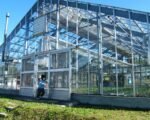As cannabis use becomes increasingly accepted across the United States, researchers from Nationwide Children’s Hospital are raising significant concerns about its use during pregnancy. A new study led by Sarah Keim, principal investigator at the hospital’s Center for Biobehavioral Health, sheds light on the potential risks cannabis poses to developing children when used in utero.
Keim’s research reveals that prenatal cannabis exposure can have serious consequences on children’s cognitive and behavioral development. While cannabis is often viewed as a natural remedy, especially for pregnancy-related issues such as nausea, stress, and sleep disturbances, Keim cautions that its effects on the developing brain are far from benign.
Cognitive and Behavioral Challenges for Exposed Children
The study, which tracks the development of children who were exposed to cannabis during pregnancy, found that these children often struggle with impulse control, attention, and planning abilities. According to Keim, the children studied “on average, had more difficulty controlling their impulses and paying attention,” and showed “poor planning ability” compared to their peers who were not exposed to cannabis during pregnancy. Additionally, children exposed to cannabis in utero were found to exhibit more aggressive behaviors as they grew older.
These findings are deeply concerning, as they suggest that prenatal cannabis exposure could have lasting impacts on a child’s ability to function in both academic and social settings. Difficulty with attention and impulse control are common signs of ADHD, a condition that could potentially be exacerbated by cannabis exposure during critical stages of brain development.

Rising Cannabis Use During Pregnancy
Cannabis is increasingly being used by pregnant women, often as a remedy for the common discomforts of pregnancy such as nausea, sleep issues, anxiety, and depression. In fact, some expectant mothers view cannabis as a natural alternative to prescription medications. However, the research conducted by Keim and her team suggests that, despite cannabis’ growing popularity, it is not without its risks—especially for developing babies.
“I think sometimes people think that because cannabis comes from a plant, that must make it safe, and that just really isn’t the case at all,” Keim said, emphasizing the potential harms that may not be immediately apparent. While cannabis may offer short-term relief for certain pregnancy symptoms, its long-term impact on child development could far outweigh any immediate benefits.
A Safer Approach: Alternatives to Cannabis Use
Keim also highlights that there are safer and more effective alternatives to cannabis for managing common pregnancy symptoms. For nausea, sleep problems, and stress, there are a variety of treatments—both medical and natural—that pose no risk to the developing fetus. These alternatives should be explored before turning to cannabis, especially given the potential long-term cognitive and behavioral risks for the child.
“I think it’s important that patients know that there are better and safer alternatives to deal with those common problems than cannabis,” Keim said. She advocates for the use of evidence-based therapies and interventions that have been shown to be safe during pregnancy.
The Need for Further Research
While Keim’s study adds to the growing body of evidence against prenatal cannabis use, she acknowledges that more research is needed to fully understand the long-term effects of cannabis exposure during pregnancy. However, the current findings are significant enough to urge caution among pregnant women who may consider using cannabis.
As cannabis laws continue to evolve and its use becomes more widespread, health professionals are calling for increased public awareness about the potential risks. Until more conclusive research is available, medical experts advise expecting mothers to err on the side of caution and avoid cannabis use during pregnancy.
Protecting Both Mother and Child
The evidence from Nationwide Children’s Hospital’s research underscores the importance of making informed decisions about cannabis use during pregnancy. While the substance may seem harmless, its potential to affect a child’s cognitive and behavioral development is a risk that should not be overlooked.
Keim’s research serves as a reminder to both healthcare providers and patients alike that just because something is natural does not automatically make it safe. For pregnant women, the priority should be the health and well-being of both the mother and the child, and that means seeking out safer alternatives to manage pregnancy-related symptoms rather than turning to cannabis.
Emily Wilson is a talented wordsmith whose passion for cannabis shines through in her eloquent articles that explore the plant’s cultural significance and historical context. With a focus on arts and lifestyle, she weaves together narratives that celebrate the creativity, innovation, and community fostered by cannabis enthusiasts worldwide. Emily’s unique perspective and engaging storytelling invite readers to embark on a journey of discovery and appreciation for the diverse facets of the cannabis experience.








